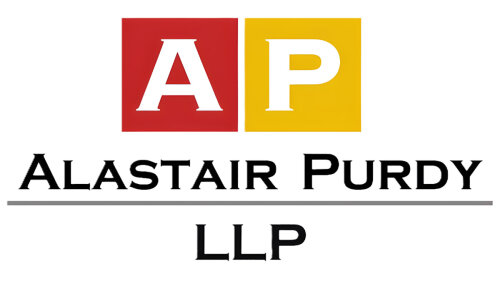Best Whistleblower & Qui Tam Lawyers in Galway
Share your needs with us, get contacted by law firms.
Free. Takes 2 min.
List of the best lawyers in Galway, Ireland
About Whistleblower & Qui Tam Law in Galway, Ireland
Whistleblower and Qui Tam law in Galway, Ireland, is primarily concerned with the protection of individuals who report wrongdoing within organizations. These laws encourage private individuals, often employees, to expose illegal or unethical practices. Qui Tam, a concept originating from U.S. law, allows individuals to sue on behalf of the government, potentially receiving a portion of the recovered damages. In Ireland, whistleblowing is particularly important for uncovering fraud, corruption, and other unlawful activities, thereby contributing to transparency and accountability across sectors.
Why You May Need a Lawyer
Seeking legal advice for whistleblower and Qui Tam matters is crucial for several reasons:
- Understanding Legal Protections: A lawyer can help you understand the legal protections available to whistleblowers and ensure your actions are protected under Irish law.
- Building a Case: Legal experts can assist in gathering evidence, documenting your case, and effectively presenting your claims to ensure the greatest chance of success.
- Handling Retaliation: If you face retaliation from your employer or other parties, a lawyer can help you seek restitution and protect your rights.
- Pursuing Qui Tam Actions: To pursue a Qui Tam action, legal counsel can guide you through the complex process of filing a claim, potentially benefiting from any government recovery.
Local Laws Overview
In Galway, Ireland, whistleblower protections are governed largely by the Protected Disclosures Act 2014, which aims to protect employees who choose to report wrongdoing. Key aspects include:
- Protected Disclosures: This Act provides protections for workers disclosing information in the public interest regarding crimes, miscarriages of justice, health and safety threats, environmental damage, and legal breaches.
- Methods of Disclosure: Disclosures can be made to an employer, a regulatory body, or, in certain circumstances, directly to the public.
- Protection Against Retaliation: Employees are protected from dismissal, penalization, or any form of retaliation as a result of their disclosure.
- Confidentiality: The identity of the whistleblower is protected, ensuring that their anonymity is preserved throughout the process, where applicable.
Frequently Asked Questions
What qualifies as a "protected disclosure" under Irish law?
A "protected disclosure" involves providing information that you believe shows wrongdoing in the workplace, such as criminal offenses, health and safety risks, or legal breaches, made in the public interest.
Can I report wrongdoing anonymously?
While anonymous reports can sometimes be acted upon, the Protected Disclosures Act 2014 encourages openness and makes provisions for your identity to remain confidential to the extent possible.
What should I do if I face retaliation after whistleblowing?
If you experience retaliation, it is advisable to seek legal counsel promptly. The law protects you from unfair treatment, and a lawyer can help you to assert and defend your rights.
Is my employer obligated to have a whistleblowing policy?
Yes, employers in both the private and public sectors are encouraged to have policies outlining procedures for making protected disclosures, ensuring transparency and protection for whistleblowers.
Can I report to external bodies, or must I disclose internally first?
While internal disclosure is often encouraged, you can report to external bodies or regulatory authorities directly, especially if internal channels do not address the issue effectively.
Do whistleblowing protections apply to all types of employees?
Protections apply broadly to employees, including contractors, interns, and agency workers, as long as they disclose information in the public interest.
What is a Qui Tam action?
A Qui Tam action allows individuals to sue on behalf of the government for fraud against public funds. Although less common in Ireland, similar principles can be applied under specific circumstances.
Will I receive a reward for a successful whistleblower report?
While Irish law doesn't specifically offer financial rewards like U.S. Qui Tam laws do, you may receive some benefits indirectly, such as legal protection and the rectification of the reported misconduct.
How long does the whistleblowing process typically take?
The duration varies significantly depending on the complexity of the case and the responsiveness of involved parties. Legal advice can help streamline the process.
Can whistleblowers be sued for defamation?
As long as disclosures are made in good faith and are intended for the public interest, whistleblowers are generally protected from defamation suits under the Protected Disclosures Act.
Additional Resources
Here are some useful resources for individuals seeking information or support on whistleblowing and Qui Tam issues in Galway, Ireland:
- Information Commissioner’s Office: Provides guidance on how to make protected disclosures.
- The Department of Public Expenditure and Reform: Offers further details on the Protected Disclosures Act and whistleblower protections.
- Transparency International Ireland: An independent organization providing advice and support for whistleblowers.
Next Steps
If you believe you need legal assistance with whistleblower and Qui Tam matters, consider the following steps:
- Research Legal Specialists: Look for solicitors or legal firms specializing in employment law and whistleblower cases in Galway.
- Consultation: Schedule a consultation to discuss your situation and receive tailored legal advice.
- Prepare Documentation: Gather all relevant documentation and evidence related to your case to share with your legal advisor.
- Consider Advocacy Groups: Reach out to advocacy groups that support whistleblowers for additional assistance and guidance.
Lawzana helps you find the best lawyers and law firms in Galway through a curated and pre-screened list of qualified legal professionals. Our platform offers rankings and detailed profiles of attorneys and law firms, allowing you to compare based on practice areas, including Whistleblower & Qui Tam, experience, and client feedback.
Each profile includes a description of the firm's areas of practice, client reviews, team members and partners, year of establishment, spoken languages, office locations, contact information, social media presence, and any published articles or resources. Most firms on our platform speak English and are experienced in both local and international legal matters.
Get a quote from top-rated law firms in Galway, Ireland — quickly, securely, and without unnecessary hassle.
Disclaimer:
The information provided on this page is for general informational purposes only and does not constitute legal advice. While we strive to ensure the accuracy and relevance of the content, legal information may change over time, and interpretations of the law can vary. You should always consult with a qualified legal professional for advice specific to your situation.
We disclaim all liability for actions taken or not taken based on the content of this page. If you believe any information is incorrect or outdated, please contact us, and we will review and update it where appropriate.














